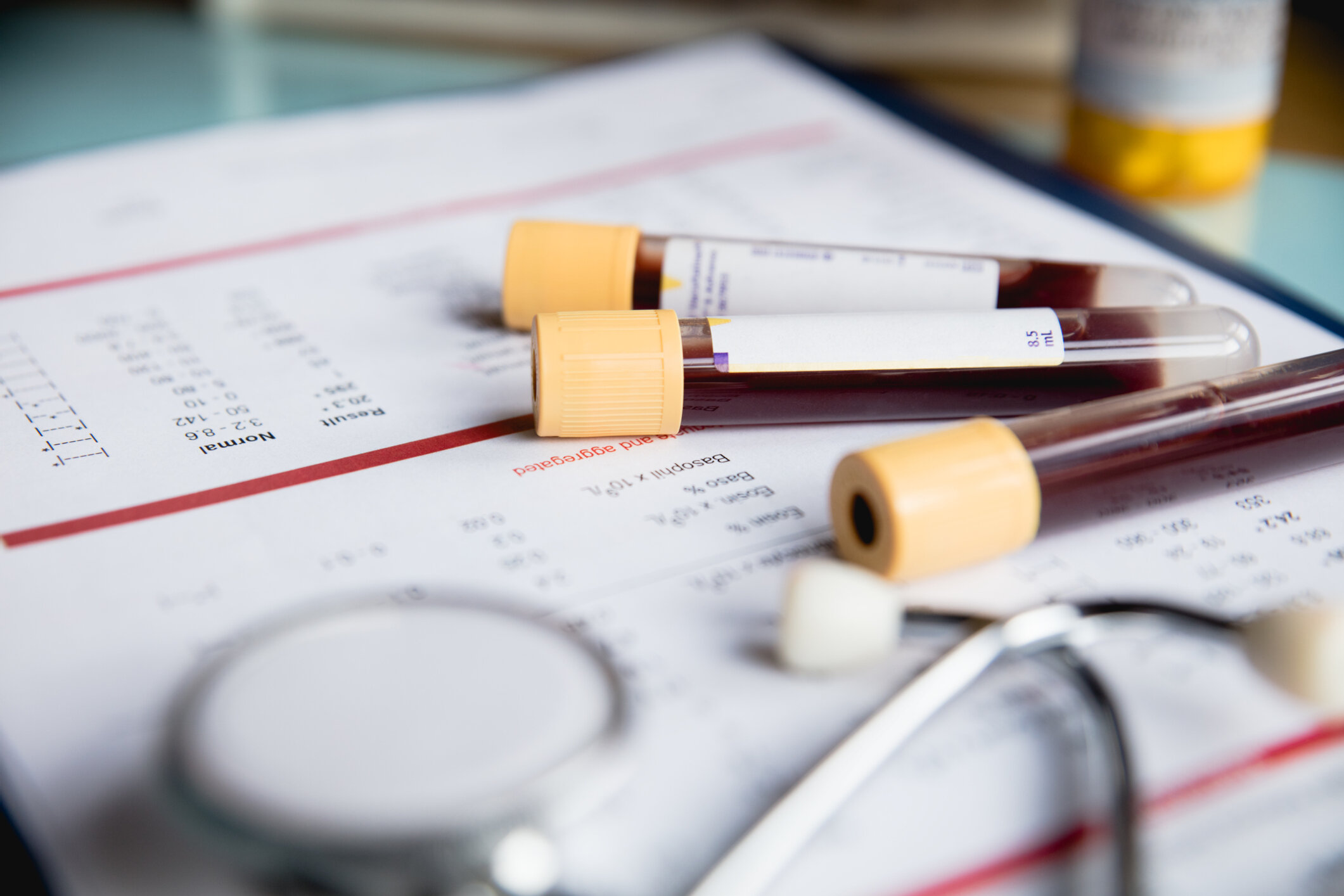How To Interpret Your Thyroid Results
If you’ve been experiencing some common symptoms that have been bugging you for a while, and further research has indicated it may be an imbalance with your thyroid, there’s one pathway to determine if this is, in fact, the case. By undergoing a thyroid panel with your practitioner, you're able to determine whether or not a dysfunction with this vital gland could be responsible for your symptoms.
You may already be working alongside a practitioner who is ready to address the results, but sometimes, we can be left in the lurch with no clear understanding of what they actually mean. Learning how to interpret your thyroid results is an important step in the healing journey, as it allows you to be your own advocate and develop a deeper awareness of your health. But where do you begin?
Here is a list of the main thyroid hormones tested through bloodwork and their role in thyroid health.
Thyroid Stimulating Hormone (TSH)
TSH isn’t produced by the thyroid itself, but rather the pituitary gland in the brain. This is the most common first-stage test completed through a general practitioner to understand if there is an obvious thyroid dysfunction present. TSH is needed for the thyroid to function, essentially it is the brain prompting it to create thyroid hormone. It works on a feedback loop by sensing how much active thyroid hormone is circulating in the body and as a result, moderates thyroid hormone production. So when there is an excess of this hormone within the body, it can be a clear indication that the thyroid is slow and sluggish and that the cells of the body are not getting enough active thyroid hormone to function optimally. This too works in reverse, with low TSH being an often obvious marker of a hyperactive thyroid gland where there is enough or too much hormone in circulation and therefore no requirement for the thyroid to produce more.
Free T4 & T3
The two primary thyroid hormones are triiodothyronine and thyroxine, otherwise known as T3 and T4. We can measure the levels of these hormones as another indicator of a malfunctioning thyroid. T4 is produced in the thyroid gland from the uptake of iodine and tyrosine from the blood (T4 represents a tyrosine backbone with 4 molecules of iodine attached). Following successful production, this hormone is then sent out into the body by a protein called thyroid-binding globulin to be converted to active T3 (where one of the iodine molecules have be cleaved of). This is the hormone that every cell in the body relies on for metabolic activities like producing energy and heat. In order for T4 to be converted to T3 an enzyme called Deiodinase enzyme 1 (D1) is required which is dependant on selenium, zinc and B6. Deficiencies in any or all of these nutrients can contribute to reduced conversion and thus hypothyroidism.
The body produces both total and free portions of these hormones. However its the free active portions (FT4 & FT3) which are clinically relevant and tested through blood. Suboptimal or overly low levels of these hormones can indicate hypothyroidism or Hashimoto's, where elevations may reflect hyperthyroidism or Graves disease.
Reverse T3
Free T4 can be converted into one of two hormones; Free T3 as mentioned above, or reverse T3 which is not metabolically active and instead will compete with Free T3 for receptor sites on cells. The body will always produce both, however under certain circumstances the body can produce more reverse T3.
The best way to understand this is by imagining having the wrong key for the lock, but the lock is the receptor on your cell membrane. Free T3 “opens” the lock, meaning it is taken up by the cell to be used. While on the other hand, reverse T3 may fit the lock, only it doesn't “open”. The larger the ratio of reverse T3 to Active T3, means the less likely active T3 can support metabolic processes. In this circumstance the individual can continue to experience hypothyroid symptoms despite other hormone levels being “normal.”
There are many factors that can increase this ratio including elevations in stress, nutrient deficiencies, inflammation, infection, starvation, fasting or in chronic health conditions.
Thyroid Antibodies
As part of the immune response, the human body creates antibodies, which are special protein molecules produced in response to antigens. Antigens are the substances that trigger the creation of these antibodies. In some circumstances the body will begin producing antibodies directed at the thyroid that begin to cause inflammation and destruction of the gland itself. When addressing thyroid disease and dysfunction, there are three key antibodies that will be measured. These are:
TSH Stimulating Immunoglobulin
Anti-Thyroglobulin Antibody
Anti-Thyroid Peroxidase Antibody
The presence of each of these antibodies can indicate the presence of two autoimmune thyroid conditions. It’s important to point out that these antibodies are often the first markers to go out in early thyroid disease and as they rise will start to influence the thyroid glands production of thyroid hormone. However they are also often the last markers to be tested in evaluating thyroid function.
In Graves' disease TSH Stimulating Immunoglobulin rises and, as the name suggests, influences the amount of TSH being produced by the pituitary gland. This tells the thyroid to produce dangerously high levels of T4, which leads to the same dangerously elevated level of T3 being produced. If left unchecked Graves’ can be life threatening.
In Hashimoto's Anti-Thyroglobulin and/or Anti-Thyroid Peroxidase antibodies will be elevated. These antibodies attack either the protein thyroglobulin and/or the enzyme Thyroid Peroxidase needed to produce thyroid hormone, which ultimately leads to reduced T4 and T3 production as well as inflammation and damage to the thyroid gland itself.
Making sense of the results.
As you can see, there are many different markers that can be tested to evaluate thyroid function. The more information you have in regards to your labs, the better equip you will be to discuss your health with your doctor or specialist and be able to take a proactive approach in supporting your own health long term.
If you are interested in ordering thyroid labs or discussing your results from a holistic approach, consider booking a free 15-minute consultation today to discover how we can best work together.

